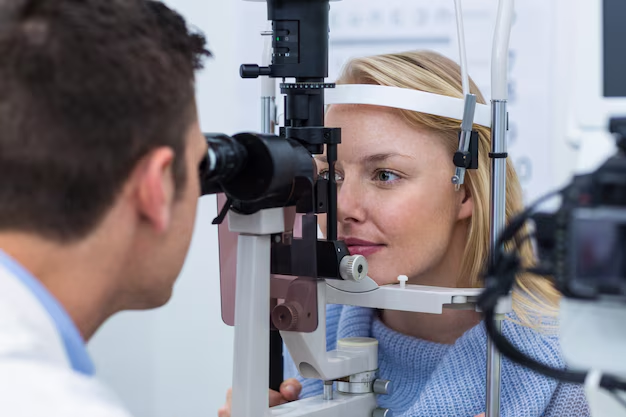Your Guide to Can Cataracts Be Reversed
What You Get:
Free Guide
Free, helpful information about Cataract FAQ and related Can Cataracts Be Reversed topics.
Helpful Information
Get clear and easy-to-understand details about Can Cataracts Be Reversed topics and resources.
Personalized Offers
Answer a few optional questions to receive offers or information related to Cataract FAQ. The survey is optional and not required to access your free guide.
Can You Really Reverse Cataracts? Exploring the Full Picture
For many, the thought of developing cataracts is daunting. The clouding of the eye's natural lens can diminish vision quality and interfere with daily activities, leading to a common question: Can cataracts be reversed? In this comprehensive guide, we're diving into this topic to explore the nature of cataracts, their treatment options, and what the future might hold in terms of reversing this pervasive condition.
Understanding Cataracts: The Basics
Before exploring the reversibility of cataracts, it's important to understand what they are. Cataracts develop when proteins in the eye's lens begin to break down and clump together, forming a cloudy area that obstructs vision. Known for affecting older adults, cataracts can also be present at birth or develop due to injury or other medical conditions.
Causes and Risk Factors
While aging is the most common cause of cataracts, several factors can accelerate their formation:
- Diabetes: Increases the risk of cataract development.
- Smoking: Known to affect overall eye health.
- Prolonged sun exposure: Ultraviolet light can contribute to the deterioration of lens proteins.
- Alcohol consumption: Excessive drinking has been linked to various eye diseases.
Symptoms to Watch For
Early signs of cataracts might be subtle and easy to overlook. Here are key symptoms:
- Blurred vision: Often compared to looking through a frosty window.
- Faded color perception: Colors may not appear as bright and vivid.
- Halos around lights: Especially noticeable at night.
- Increased sensitivity to glare: Difficulty driving at night or in bright conditions.
The Current State of Cataract Treatments
While reversing cataracts remains outside the realm of current medical capabilities, several effective treatments are available.
Cataract Surgery: The Gold Standard
Cataract surgery is the most common and effective treatment for restoring vision. The procedure involves removing the cloudy lens and replacing it with a clear artificial one. It's typically performed on an outpatient basis and is renowned for its high success rate. After surgery, most patients experience a significant improvement in vision and quality of life.
Non-Surgical Options and Future Possibilities
At present, there are no non-surgical treatments that can reverse fully developed cataracts. However, ongoing research shows promise:
- Eye Drops: Some studies are exploring eye drops containing compounds that might dissolve the clumped proteins responsible for cataracts.
- Nutritional Supplements: Research suggests a diet rich in antioxidants may slow cataract progression, though it cannot reverse them.
Emerging Research: Hope on the Horizon?
Healthcare professionals and scientists are continually researching ways to prevent or even reverse cataracts. The use of eye drops with lanosterol and other compounds has garnered attention in recent years. While initial results seem promising in laboratory settings, further research is needed before these solutions become widely available.
Practical Steps to Manage Cataracts
While reversing cataracts is not currently a reality, there are steps you can take to manage and slow their progression:
- Regular Eye Exams: Annual eye exams can detect the early signs of cataracts and other ocular diseases.
- Sunglasses with UV Protection: Minimizing UV exposure can help protect the eyes.
- Healthy Lifestyle Choices: A balanced diet, no smoking, and regular exercise contribute to overall eye health.
🌟 Key Takeaways for Managing Cataracts
Here’s a concise list of practical steps and considerations to manage cataracts:
- 👁️ Seek Regular Eye Exams: Early detection means prompt management.
- 🌞 Protect Your Eyes from the Sun: Wear UV-protective sunglasses.
- 🥗 Adopt a Nutritious Diet: Emphasize foods rich in antioxidants.
- 🚭 Quit Smoking: Smoking cessation benefits eye and general health.
- 🤓 Stay Informed and Consult Professionals: Stay updated on new research and maintain open dialogue with healthcare providers.
What the Future Holds
The prospect of reversing cataracts centers on extensive research and technological advances. With an aging population, the need for innovative treatments is more critical than ever. As scientific exploration continues, hope remains that future breakthroughs may shift the current paradigm, offering new opportunities for those affected by cataracts.
In conclusion, while cataracts cannot be reversed today, understanding the condition and seeking timely medical advice are crucial. With the consistency of care and the potential of future innovations, maintaining your eye health remains an attainable goal. By staying proactive and informed, you can navigate the path forward with clarity and confidence.
What You Get:
Free Cataract FAQ Guide
Free, helpful information about Can Cataracts Be Reversed and related resources.

Helpful Information
Get clear, easy-to-understand details about Can Cataracts Be Reversed topics.

Optional Personalized Offers
Answer a few optional questions to see offers or information related to Cataract FAQ. Participation is not required to get your free guide.


